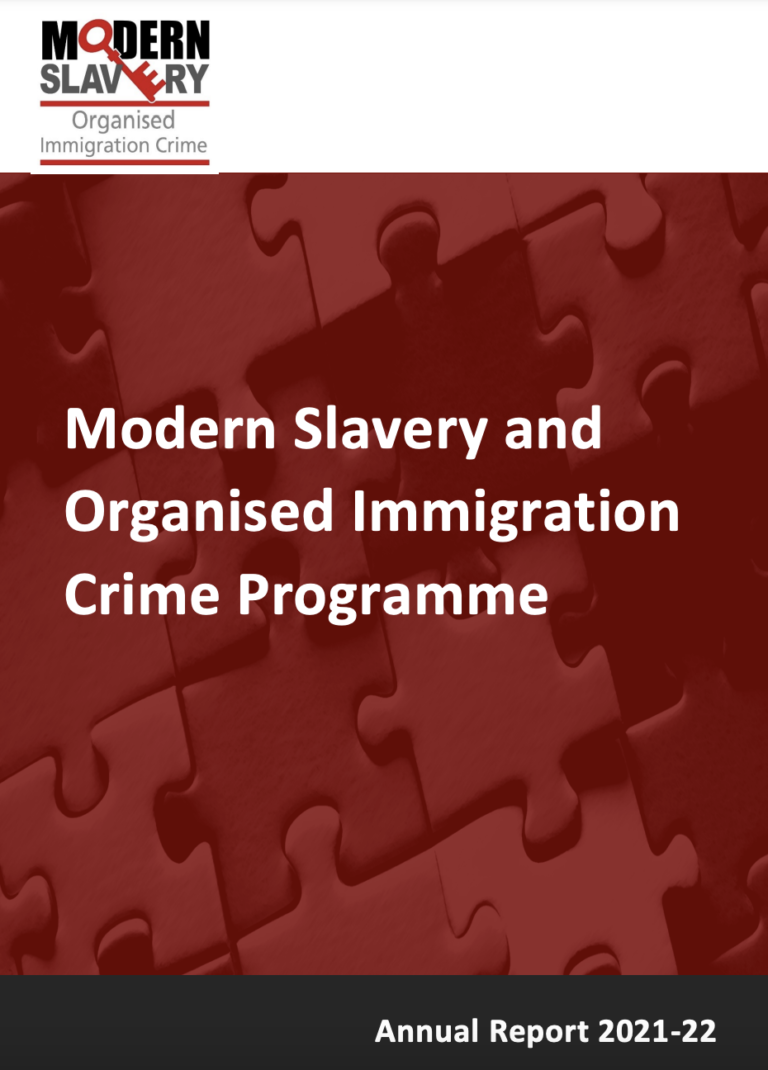Educators and Human Trafficking: In-Depth Review
GuidanceA resource specifically for educators and school-based professionals to help recognize, respond, and prevent human trafficking in an educational context.
The Modern Slavery and Organised Immigration Crime Programme continues to build on the work undertaken in previous years. In 2021-22 the programme continued to drive improvements in the identification of victims and improve Modern Slavery criminal justice outcomes. The Home Office agreed additional funding to support police forces’ response to Organised Immigration Crime.
Overview of the 2021-22 Programme
Modern Slavery: The focus of the Programme for 2021-22 was to embed good practice into business as usual across all forces. Additional funding was provided in the last quarter to give forces additional resources to prevent sexual exploitation.
Organised Immigration Crime: Increased Home Office funding to support police forces’ response to Organised Immigration Crime, allowed the Programme to grow the Operation Policing Team pilot from eight to fifteen forces in 2021-22. The Home Office provided total funding of £2,512,000 in 2021-22 to support forces to improve their response to Modern Slavery and Organised Immigration Crime.
Funding in 2022/23: The Home Office has agreed further funding of £2,523,000 for the Modern Slavery and Organised Immigration Crime Programme to be extended until 31 March 2023. This will enable the Programme to support Forces around the OIC Section 5 tasking, whilst consolidating work with Forces around improving their response to Modern Slavery investigations.

A resource specifically for educators and school-based professionals to help recognize, respond, and prevent human trafficking in an educational context.
Trafficking occurs before, during, and after crises. It may occur at any stage of displacement and in any location. Traffickers capitalize on the widespread human, material, social and economic losses and consequent vulnerabilities caused by emergen...Read More
This study takes a child rights lens to the topic of work in home-based and small workshop settings in Asia. As home-work often is associated with child labour, the topic is picked up rather gingerly, where at the same time some industries are infam...Read More
People often assume that only legislators and law enforcement personnel can take meaningful steps to fight human trafficking, one of the most lucrative transnational crimes in the world. This inquiry sought to assess the validity of that belief. The...Read More